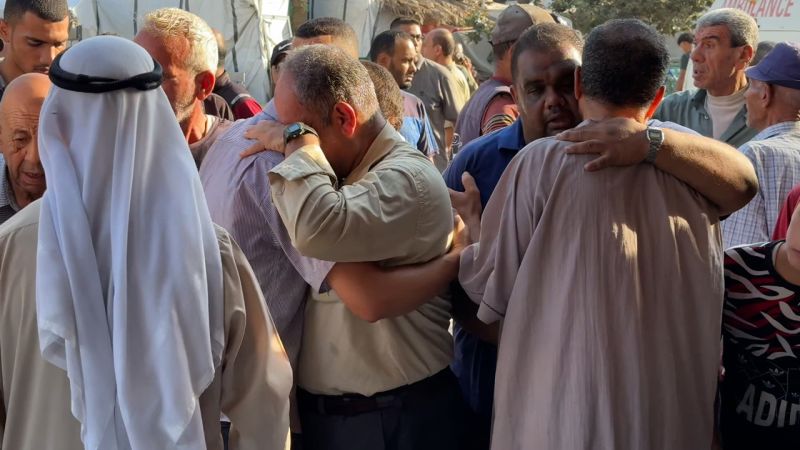As the escalating conflict between Israel and Hamas continues, a tragically poignant event occurred recently – an Israeli strike that killed seven members of the same family. This comes at a critical time when U.S. Secretary of State Antony Blinken is endeavoring to negotiate a ceasefire and hostage deal.
The tragic incident of an Israeli airstrike left the al-Kawalek family mourning the loss of seven family members, residing in the Gaza Strip. The family, including six children and their mother, were killed in their home. The entire block was reduced to rubble, highlighting the catastrophic power of the military force deployed during this conflict. The loss of innocent civilian lives is a stark reminder of the high human costs of this ongoing military conflict.
Meanwhile, Blinken, leading the diplomatic front for the United States, has been set on the task of pushing for a ceasefire between Israel and Hamas. The intermediate goal is to suspend the violence and prevent the further loss of innocent lives. However, achieving this crucial ceasefire entails confronting several complex political, ideological, and military challenges.
In addition to the urgent need for a ceasefire, Blinken is also set to handle another sensitive issue haunting this crisis: the hostage situation. Reports suggest an Israeli is held hostage by Hamas, further escalating the crisis. Though the specifics of the hostage situation remain undisclosed due to its sensitive nature, Blinken’s dual role of negotiating a ceasefire and securing the safe release of the hostage has raised the stakes high for American diplomacy.
The U.S., an established ally of Israel, has been trying to balance its relationships with Middle Eastern countries. Blinken is cognizant of the task at hand, realizing that not only does he need to play a pivotal role in securing a ceasefire and resolving the hostage situation but also, manage the fragile web of diplomatic relationships.
The role of international diplomatic intermediaries like Blinken is crucial in situations like these. They carry the responsibility of pacifying the warring sides, ensuring the protection of innocent lives, and most importantly, setting the stage for long-term peace negotiations.
The clear juxtaposition of the family’s tragic loss in the Israeli strike and the expectation from Blinken to negotiate a peaceful resolution underpins the dire conditions in the Israeli-Hamas conflict. It is a situation that necessitates a delicate balance of diplomacy, firmness, and every once possible, empathy.
The pressure on international figures like Blinken has undoubtedly increased, as the world looks onto them to help resolve the devastating conflict. It is in this backdrop of violence, loss, and frantic diplomacy that the ultimate hope for a peaceful resolution to the Israeli-Hamas conflict persists. There is an urgent need for the military hostility to cease, for the hostages to return safely— and above all, to prevent such devastating familial loss, like that of the al-Kawalek family, from reoccurring.
As the hostilities continue to surge, the role of political leaders and diplomats like Blinken, along with the collective international community, will be instrumental in reducing and hopefully eradicating the fatal consequences of this conflict.




